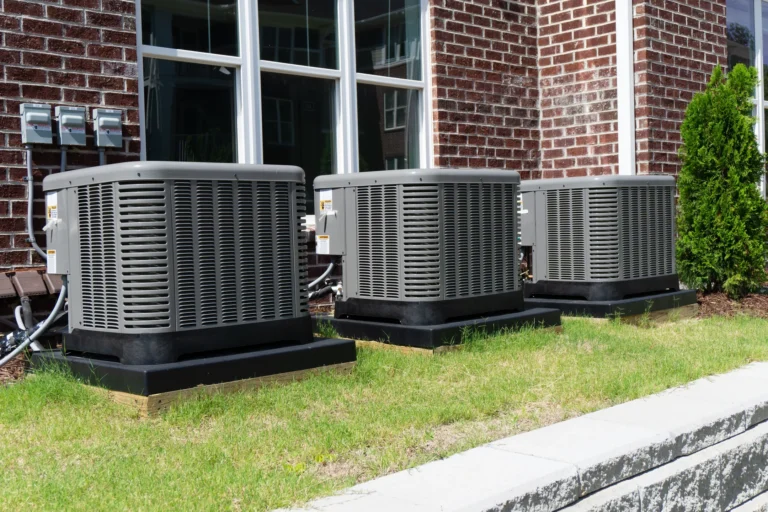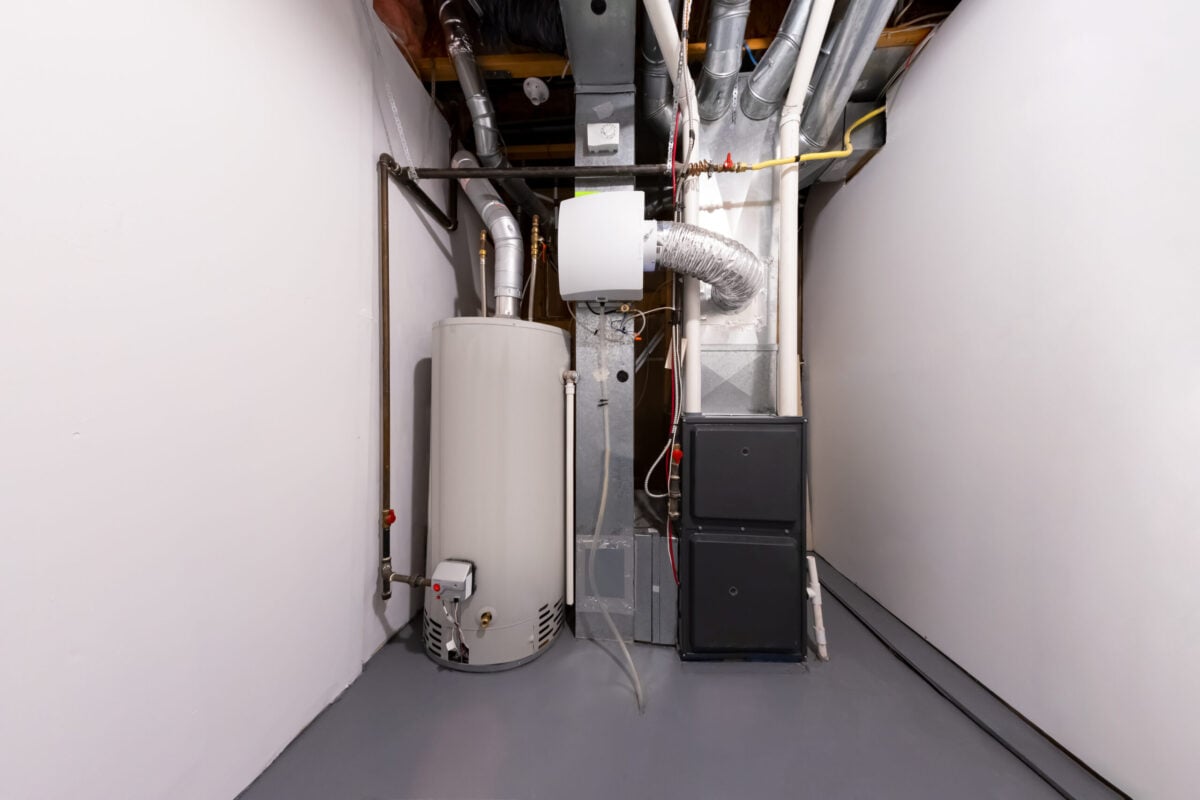
Electric Furnace vs Gas: Which Is Better for Your Home?
Choosing the right furnace for your home is one of the most important decisions you’ll make as a homeowner. Your heating system affects everything from your monthly energy bills to your family’s comfort during those chilly Florida winter nights. When weighing electric furnace vs gas options, many homeowners feel overwhelmed by the technical details and long-term implications.
This comprehensive guide will walk you through everything you need to know about electric and gas furnaces. We’ll cover the key differences, operating costs, installation requirements, environmental impact, and maintenance needs to help you make an informed decision. Whether you’re replacing an aging system or installing heating in a new home, understanding these differences will save you money and ensure your family stays comfortable year-round.
Here’s what we’ll explore:
- How electric and gas furnaces work
- 6 key differences between electric and gas furnaces
- Which option works best for Florida homes
🔎 How Electric and Gas Furnaces Work
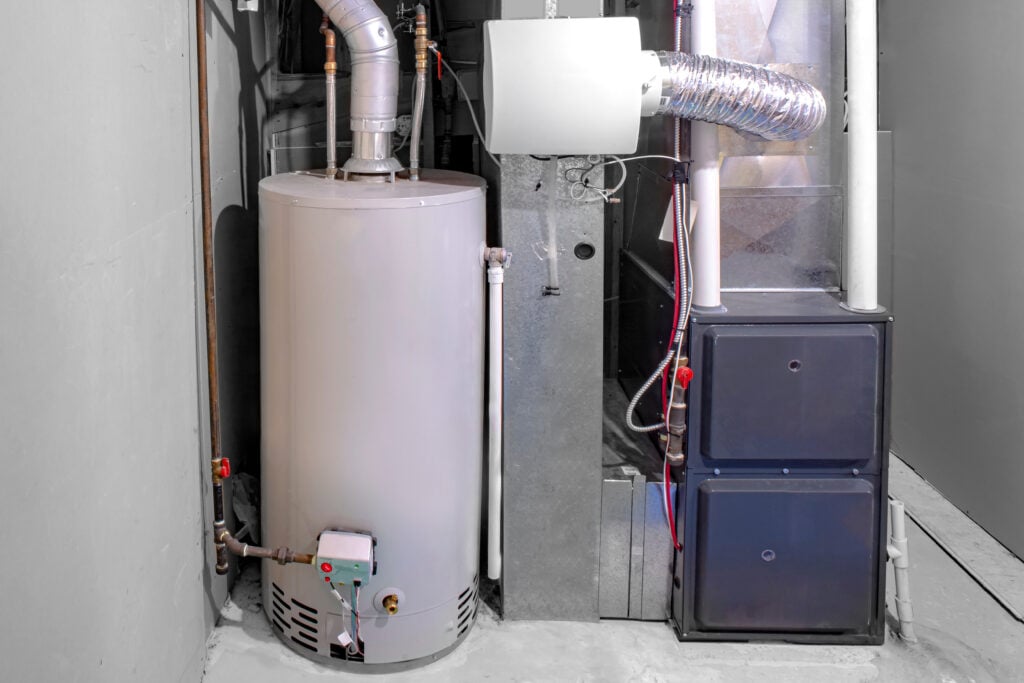
Understanding the basic operation of each furnace type helps you appreciate their unique advantages and limitations.
Electric furnaces use heating elements, similar to those in a toaster or electric oven, to warm the air. When your thermostat calls for heat, electricity flows through these coiled elements, which heat up and warm the air that’s blown over them by the system’s fan. The heated air then travels through your ductwork to warm your home.
Gas furnaces burn natural gas or propane in a combustion chamber to create heat. The heat exchanger captures this thermal energy and transfers it to the air circulating through your home. Exhaust gases from combustion are safely vented outside through a flue or chimney system.
Both systems rely on your home’s existing ductwork and use similar blower fans to distribute heated air throughout your living spaces. The main difference lies in their heat source and the infrastructure required to operate them.
Key Points to Remember
- Electric Furnaces: Use electric heating elements, distribute heat through ductwork, and require no venting.
- Gas Furnaces: Use natural gas or propane, transfer heat via a heat exchanger, and require venting for exhaust.
- Shared Features: Utilize existing ductwork, blower fans, and provide effective air circulation for heating.
✅ 6 Key Differences Between Electric and Gas Furnaces
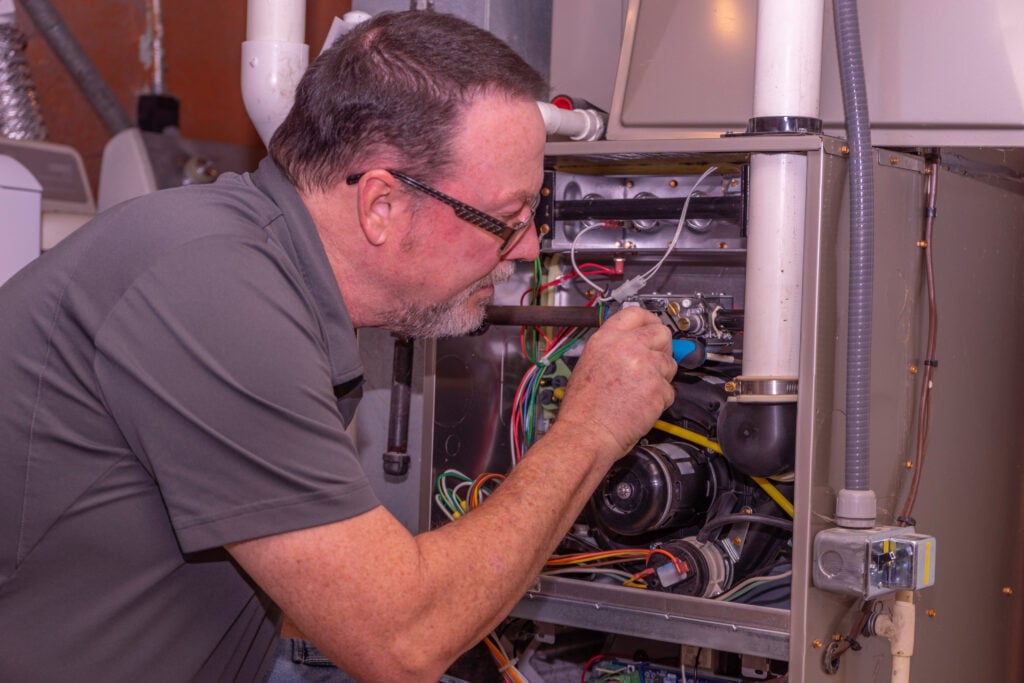
Understanding the differences between electric and gas furnaces is crucial for choosing the right heating system for your home. Each option has unique costs, efficiency, and maintenance requirements that can impact your comfort and budget.
1. Energy Source and Availability
Electric furnaces are powered by your home’s electrical system, making them a flexible option for virtually any location with electricity. Since electricity is widely available, these furnaces can be used in both urban and rural areas without concern for energy source limitations. On the other hand, gas furnaces require access to a natural gas line or a propane storage tank, which may not be readily available everywhere. In Florida, for example, natural gas availability varies depending on the region. Urban areas are more likely to have natural gas infrastructure, while rural communities often lack this resource, making propane the alternative fuel source. This difference in energy source availability can significantly impact your decision when choosing between an electric or gas furnace.
2. Heating Speed and Performance
Gas furnaces are known for their ability to heat a home quickly and efficiently. Natural gas burns at a very high temperature—approximately 3,500°F—allowing gas furnaces to reach their operating temperature much faster than electric units. This rapid heating capability makes gas furnaces ideal for colder climates where quick, consistent warmth is necessary. On the other hand, electric furnaces take longer to warm up as they rely on electrical resistance to generate heat, which is a slower process. While electric furnaces can maintain a comfortable temperature in mild to moderate climates, they may struggle to provide consistent heat during extreme cold. This difference in performance may be a critical consideration based on the climate where you live and your heating needs.
3. Operating Costs
The cost of operating your furnace largely depends on local utility rates for electricity and natural gas. Natural gas generally costs less per BTU (British Thermal Unit) of heat produced compared to electricity, making gas furnaces more cost-effective in many areas. However, electric furnaces are highly efficient, converting nearly 100% of the electricity they use into heat, whereas gas furnaces lose some energy through exhaust venting. In regions where electricity is expensive, operating an electric furnace may lead to higher monthly heating bills, despite its efficiency. Conversely, in areas with low electricity costs and limited natural gas availability, electric furnaces might be the more economical option. Assessing utility rates in your area is essential when weighing the long-term costs of each type of furnace.
4. Installation Requirements
When it comes to installation, electric furnaces are generally less complex and more affordable to set up. They don’t require gas line connections, venting systems, or combustion air supplies, making them simpler and quicker to install. This makes them ideal for homes without existing natural gas infrastructure or for homeowners looking for a straightforward heating solution. Gas furnaces, however, come with additional installation requirements. They need a properly sized gas line, a reliable venting system to expel combustion gases, and adequate airflow for combustion. Professional safety inspections are also necessary to ensure proper functioning and compliance with local codes. Because of these added complexities, gas furnace installation typically incurs higher upfront costs than electric systems.
5. Lifespan and Durability
The expected lifespan of a furnace is another important factor to consider. Electric furnaces generally last longer than gas furnaces, often operating for 20 to 30 years with proper care. This extended lifespan is due to their simpler design and lack of moving parts, which reduces wear and tear over time. Additionally, electric furnaces don’t produce combustion byproducts, which can cause corrosion and other issues in gas systems. Gas furnaces, while durable, have a shorter lifespan—typically around 15 to 20 years. They require regular maintenance to address issues related to combustion and ensure safe operation. For homeowners seeking a long-term solution, an electric furnace may provide better value in terms of durability and longevity.
6. Safety Considerations
Safety is a critical aspect of choosing a furnace. Electric furnaces are generally safer than gas furnaces because they don’t involve combustion, eliminating risks associated with gas leaks, carbon monoxide poisoning, and fires. This makes them a reliable option for households prioritizing safety, particularly in homes with children or elderly residents. Gas furnaces, while effective at heating, require additional safety measures. Carbon monoxide detectors are a must to monitor for potential leaks, and regular inspections are necessary to ensure the system is functioning properly and safely. Improper installation or neglecting maintenance can increase the risks associated with gas furnaces. Homeowners choosing a gas furnace should be prepared to invest in these safety precautions to protect their household.
🏠 Which Option Works Best for Florida Homes?
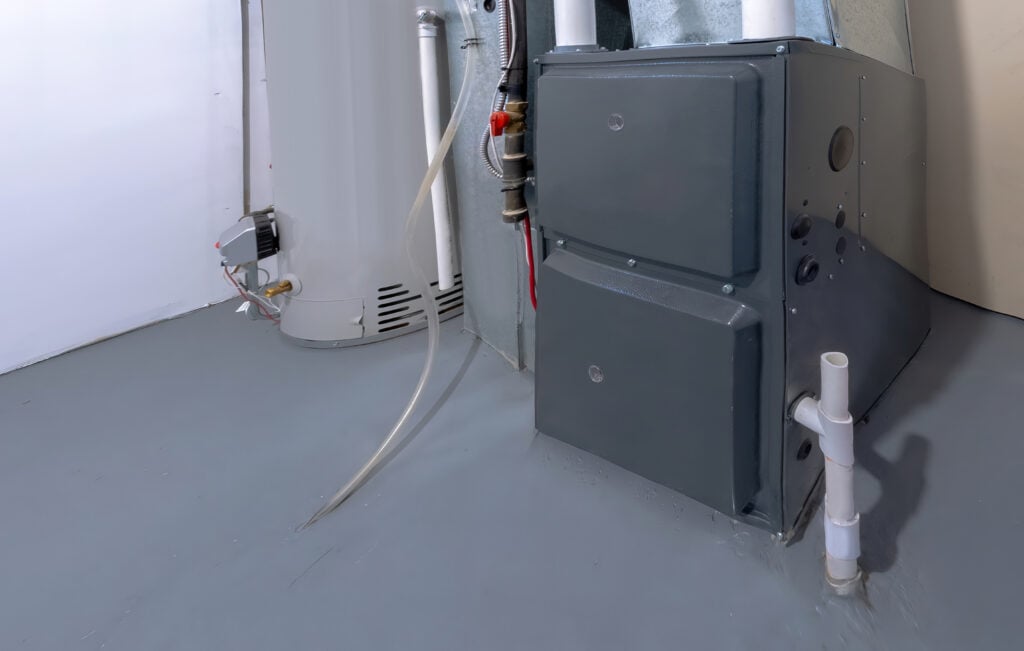
Florida’s unique climate creates specific considerations for heating system selection. The state’s mild winters mean your heating system operates less frequently than in northern climates, affecting the cost-benefit analysis.
Electric furnaces can work well in Florida because:
- Lower heating demands reduce operating cost differences
- Many homes already have adequate electrical service
- No gas line infrastructure required in rural areas
- Simplified installation in coastal areas with corrosion concerns
Gas furnaces may be preferable when:
- Natural gas is readily available
- You have high heating demands due to large home size
- You prioritize fast heating response
- Natural gas rates are significantly lower than electricity
Heat pumps deserve consideration in Florida’s climate. These systems provide both heating and cooling efficiently in mild climates and may offer better value than either electric or gas furnaces for year-round comfort.
👉 Making the Right Choice for Your Home
Your decision between electric furnace vs gas should consider several personal factors beyond just operating costs.
Evaluate Your Home’s Infrastructure
If your home already has natural gas service for other appliances, adding a gas furnace might be a practical choice. Homes without gas service might find electric systems more cost-effective.
Consider Usage Patterns
For families that rarely use heating or need supplemental heat in specific areas, the lower installation costs of an electric system might outweigh higher operating expenses.
Think About Long-Term Plans
If you plan to stay in your home for many years, operating cost differences between systems become more important. Short-term residents may prefer lower upfront costs.
Factor in Local Utility Trends
Electricity rates in some areas are stabilizing, while natural gas prices can fluctuate. Check with your utility companies for rate projections and time-of-use programs that could impact your costs.
👨🔧 Trust Bob’s Air Conditioning for Your Furnace Needs
When it comes to choosing between an electric or gas furnace, having the right guidance makes all the difference. At Bob’s Air Conditioning, we bring over 40 years of experience helping Florida homeowners make heating decisions they can feel confident about. Our team is dedicated to providing honest, personalized recommendations tailored to your home and lifestyle.
‘With our certified technicians, professional installations, and ongoing maintenance plans, you can trust us to keep your home warm and comfortable all winter long. Don’t let the decision overwhelm you—contact Bob’s Air Conditioning today for a free consultation and let our experts help you find the perfect heating solution for your family. Call us now or visit our website to get started!
Ultimate Comfort Awaits


